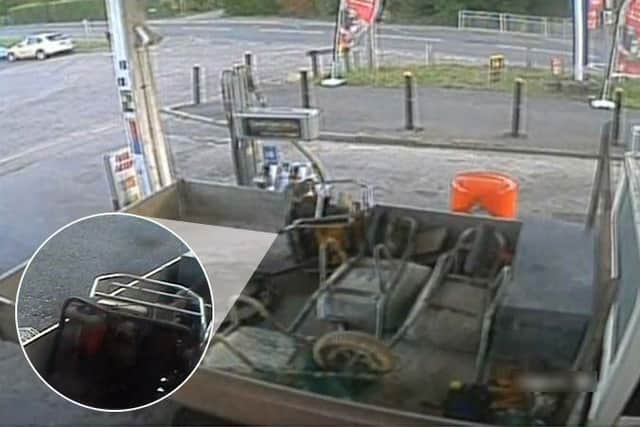Fencer convicted of causing death and serious injury by dangerous driving


Army warrant officer Emma Beeney, 40, was killed and her husband Rob, 44, also a serving soldier, was seriously injured after they were struck by a 66kg generator which fell from a flatbed Ford Transit truck after it drove over a railway level crossing on the A265 at High Street, Etchingham, on August 8 2016.
The load became dislodged and as it fell from the vehicle it struck the couple, who were walking their dog beside the road, with devastating results.
Advertisement
Hide AdAdvertisement
Hide AdStephen Ronald Dudley, 44, of Speldhurst Close, Ashford, Kent, who had denied both charges against him when he appeared at Lewes Crown Court this week (March 5-8), had been travelling to Brighton when the incident occurred.


He claimed it was often the practice to load items without restraints, their weight usually being sufficient to prevent them shifting or breaking away.
The generator is clearly shown unsecured in a CCTV image caught when the truck stopped for fuel prior to the incident
The court heard it was the driver’s responsibility to safely secure the load under Highway Code rules.
Advertisement
Hide AdAdvertisement
Hide AdA jury found Dudley guilty on both charges by majority verdicts of 10-2.


Judge Guy Anthony sentenced him to four years for causing death by dangerous driving and two years for causing serious injury by dangerous driving, to run concurrently. He also disqualified Dudley from driving for seven years.
Following the trial, Sergeant Clare Kenward, of Sussex Police’s serious collisions investigation unit, said: “Our thoughts and sympathy are very much with Emma and Rob’s family at this time.
“The decision Stephen Dudley took not to secure a generator on the vehicle that he was driving had tragic consequences. His lack of care and disregard for the safety of others resulted in Emma’s death and serious injury to her husband Rob. Just a few moments spent securing the load would have prevented this avoidable tragedy.”
Advertisement
Hide AdAdvertisement
Hide AdIn a statement following the trial, the family said: “Regardless of the verdict, the consequence of Mr Dudley’s behaviour are that Rob will spend the rest of his life with a broken heart and irreversible injuries and for all Emma’s family our sentence is ‘for life without Emma’.
“We would like to express our sadness and disappointment that in the 19 months since Emma’s tragic death, Mr Dudley has shown no remorse or taken any responsibility for his actions.
“The family wishes to thank the emergency services, Sussex Police and our legal team, the Army, the residents of Etchingham and surrounding villages.”
Nina Day, Senior Engineer, Road and Workplace Transport at the Health and Safety Executive (HSE) said: “Road traffic legislation, enforced by the police and the Driver and Vehicle Standards Agency, is very clear that loads must be secured for transport, regardless of how much they weigh or how long the journey is.
Advertisement
Hide AdAdvertisement
Hide Ad“As this tragic case has demonstrated, load shifts can have devastating consequences. HSE has supported the police throughout the investigation and will continue to work closely with other regulatory bodies in this area.”
Guidance on securing vehicle loads can be downloaded from the Driver and Vehicle Standards Agency’s website.
It says that the securing of a load must be of primary concern for all road users. Incidents happen when drivers and operators underestimate how much restraint is needed to keep a load on the vehicle.